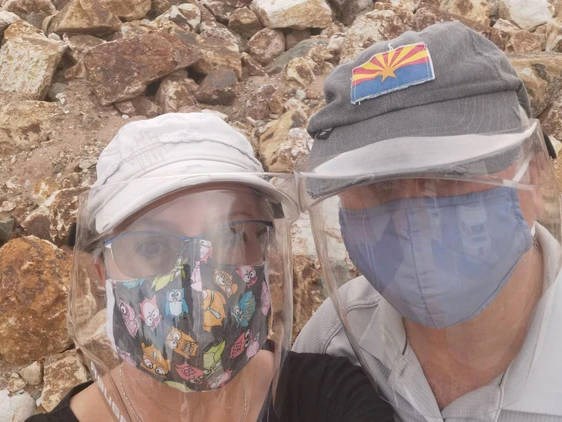A Parksville couple say they’re “trapped” in their Arizona home and will remain in the U.S. as long as Canada requires them to pay up to $2,000 each for their own quarantine when they return.
Ray Moschuk said he and his wife are not vacationing in Scottsdale. “This is our home.”
They typically spend six months in the sunny state, broken up into two three-month periods, and left Canada on Dec. 20. They made the trip to tend to their property because they were concerned about its security after someone tried to steal some fixtures.
The federal government announced last weekpeople returning from abroad will have to quarantine at hotels for at least three days while awaiting results of a COVID test administered upon arrival, but no date has been set for when this will take effect.
The move is one of several measures meant to choke off entry of the virus into Canada, but comes after case numbers of more transmissible variants have begun to rise.
Moschuk said there are a number of reasons why he objects to the mandatory three-day quarantine. He said the couple left Canada in “good faith” because Ottawa allowed it.
He also said he and his wife are self-quarantining in Scottsdale.
“We don’t play pickle ball. We don’t golf, which we love. We’re not out shopping. We’re not going into the pool [at their complex],” he said. “We’re living like we would live in Parksville.”
They plan to quarantine when they return at their home in Parksville for 14 days, after driving their car home from the airport, a car that will be stocked with groceries by their friends for their return.
It’s what they did when they returned from Arizona in March. “We’re law-abiding people,” he said.
But they object to having to stay in a government-mandated hotel for three days or longer at an estimated cost of up to $2,000 each. They worry that staying in a hotel will increase their chances of getting COVID because they will be housed in a small space, just as seniors are in long-term care homes where there have been outbreaks.
“We’re trapped down here [in Scottsdale] and we’re waiting for common sense to prevail in Canada,” he said.
Moschuk also said there is no evidence that international travellers are spreading COVID, with the majority coming from community spread.
He also questioned Canada’s legal right to penalize its own citizens and said the government was unfairly targeting seniors.
Prime Minister Justin Trudeau said on Tuesday “rare exceptions” to the new travel restrictions will be made on compassionate grounds, but that more contagious COVID-19 variants now taking hold in Canada mean tough rules must be implemented in the next few weeks.
“Since the beginning of this pandemic there have been stories of funerals that haven’t been able to be held, weddings had to [be] put off or done by Zoom, families not being able to get together,” Trudeau said at a news conference Tuesday.
“But at the same time our responsibility is to make sure we’re keeping Canadians as safe as possible. These new variants out there are of real concern,” he said.
Canada’s chief public health officer, Dr. Theresa Tam, says at least 148 cases of the variants that emerged in the United Kingdom and South Africa have been confirmed across the country, even as the number of COVID-19 cases continue to decline.
— With files from The Canadian Press



